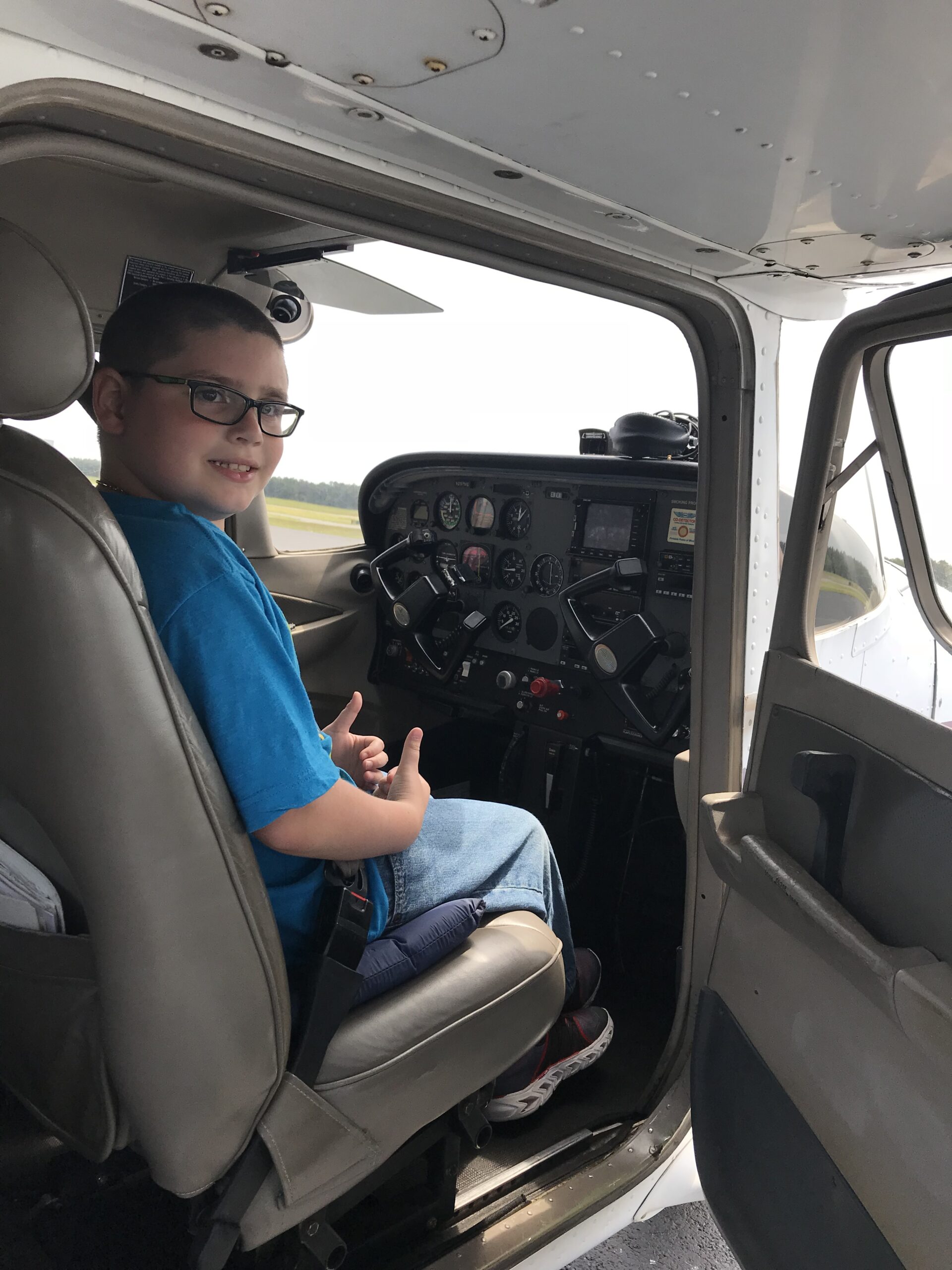By Meaghan Casey
The job of a parent is to protect his/her child, so it can be very frustrating when something goes wrong and no one has the answers.
 That was the case for Jon and Amanda Miller of Tuckerton, N.J. Following a standard newborn screening, the Millers were given a clean bill of health for their son, Evan, who was born in 2009. But, over the next 12 weeks, they began noticing signs that all was not well.
That was the case for Jon and Amanda Miller of Tuckerton, N.J. Following a standard newborn screening, the Millers were given a clean bill of health for their son, Evan, who was born in 2009. But, over the next 12 weeks, they began noticing signs that all was not well.
“He was a beautiful, awesome baby, but we had some concerns,” said Jon. “He was hard to settle down and seemed uncomfortable unless he was sitting up. By the third month, if you touched his abdomen, he would writhe in pain. His stomach was so enlarged, it looked like he was pregnant.”
The Millers’ pediatrician initially tried to dissuade their concerns, attributing the symptoms to colic. Not convinced, Jon and Amanda took Evan to the emergency room, where a series of tests and an X-ray of his abdomen were performed. There, it was discovered that the entire cavity of his abdomen was filled with fluid — a condition known as ascites, which is commonly caused by liver disease or kidney failure. They were rushed by ambulance to Jersey Shore University Medical Center, and then to Children’s Hospital of Philadelphia.
“We were told ‘if we don’t figure out what’s wrong in the next 24-48 hours, he’s going to die,’” said Jon. “When we got to Philly at 2 a.m., there were 20 doctors in the room.”
After countless tests, they got the diagnosis later that morning. Evan had been born with hereditary tyrosinemia type 1 (HT-1), a genetic disorder characterized by elevated blood levels of the amino acid tyrosine, a building block of most proteins. Tyrosinemia is caused by the shortage of one of the enzymes required for the multistep process that breaks down tyrosine. If untreated, toxic substances build up in the blood and can cause liver failure, kidney dysfunction and neurological problems. Of the three types of tyrosinemia, HT-1 affects about 1 in 100,000 individuals.
Although Evan had been tested for tyrosinemia during newborn screening, the test only looked at elevated levels of tyrosine and not succinylacetone, so he had been given a false negative. Had he been properly diagnosed, doctors could have started treatment before some of the harmful effects occurred.
“My son was not the only one not diagnosed or misdiagnosed,” said Jon. “Fortunately, it was caught, but that was after three hospital visits and being days away from dying. In cases where it was never caught, those deaths were probably written off to an unknown liver disease.”
Following his diagnosis — and 56 hours without food — Evan was given his first dose of nitisinone, which had to be flown in from Nashville. The medicine has been shown to slow the breakdown of tyrosine, thereby reducing the amount of toxic by-products in the body. Patients must also a follow a special low-protein diet.
“We were still in the hospital and I remember Googling tyrosinemia and coming up with nothing — just one website of a kid with the same condition in North Carolina,” said Jon. “I had no idea what we were going to do next or how we would pay $8,000 to leave with the medication, so I ended up talking to that family, and they told me about NORD.”
Since 1987, NORD (National Organization for Rare Disorders) has provided assistance programs to help patients obtain life-saving or life-sustaining medication they could not otherwise afford.
Equipped with the new knowledge and assistance, Jon wanted to pay it forward. He started a Facebook group to connect with other families with children with tyrosinemia.
“I got a call from a father in India and his 8-month-old twins needed the medication,” said Jon. “I called NORD, my senators, the Red Cross and Sobi [which has developed and marketed the drug under the brand name Orfadin]. Sobi caught wind of it and did the right thing. Two weeks later, those kids had the medicine.”
Since then, Jon has assisted other families in Mexico and Algeria to receive medicine and care packages with food. He went on to form the Network of Tyrosinemia Advocates (N.O.T.A.), connecting with 300 families. The organization is committed to ensuring that no child or individual around the globe goes untreated, that every parent has the support they need and that newborn screening never misses a child’s diagnosis again. Although newborn screening reaches nearly 4 million babies born in the U.S. each year, it is a state public health service and 11 states are still not in compliance with the recommended screening for tyrosinemia. Jon has gone to each of those states to advocate for change.
“It’s my calling,” said Jon. “Evan suffered tremendously, and for no reason. The screening failed us. I’m so grateful we eventually went to the ER, but the feeling I still have is guilt.”
Evan is now almost 9 years old and, according to his father, “a rock star.” He loves Cub Scouts, “Ghost Busters” and his younger sister, Alice. He hopes to be a commercial pilot one day. As long as he maintains his diet and medication, he will no doubt be able to achieve that goal and more.
To hear more stories of patient journeys with rare and other diseases, register for MassBio's annual Patient Advocacy Summit on November 2nd.